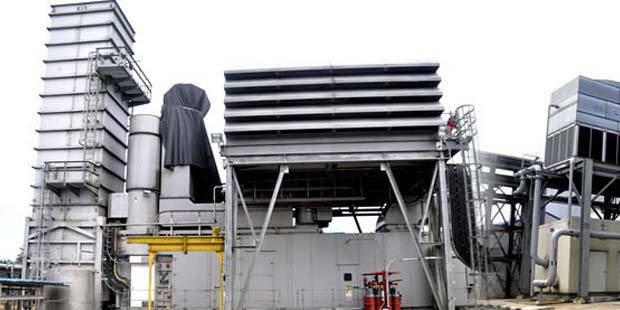 04 February 2014, Abuja – The current internal wrangling between the Managing Director of Rural Electrification Agency (REA) and the supervisory board is harmful to the power sector reforms and a sad reminder of the agency’s past chequered history, writes Chineme Okafor.
04 February 2014, Abuja – The current internal wrangling between the Managing Director of Rural Electrification Agency (REA) and the supervisory board is harmful to the power sector reforms and a sad reminder of the agency’s past chequered history, writes Chineme Okafor.
Nigeria’s Rural Electrification Agency (REA) has got a very bad operational past, as the agency had from its inception failed to make tangible inputs in government’s power sector reform efforts.
While some of the agency’s challenges are obviously unique, coming in different shades and form, others have overtime included challenges relating to technical, political, economic, financial and social issues, and all these have put REA at very uncomfortable positions that have contributed to its moribund in the past.
Faced with the technical difficulties such as the design and maintenance of an effective project portfolio for rural electrification programme to the geographical challenges of inaccessible terrains in rural communities; the REA has never in its existence shown visible commitment to meeting up with its responsibilities to rural Nigerians.
Also, the social challenges of right of way in construction and maintenance of rural electricity facilities, economic cost of supplying electricity to rural communities, as well as incessant political interference in the affairs of the REA have also collectively ensured that objectives of government’s rural electrification are not realised.
Identifying key rural electrification projects have become so much a challenge for Nigeria’s political class.
The administration of the late President Umaru Yaradua had in its wisdom suspended the operations of the agency on allegations of corruption levelled against some of its top management cadre and members of the House of Representatives’ committee on power.
History of Corruption
In 2009, the government through the Economic and Financial Crimes Commission (EFCC) initiated a 156-count corruption charge before a Federal Capital Territory High Court in Abuja, accusing the then chairman of the house of representatives committee on power, Ndudi Elumelu, its deputy chairman, Jibo Mohammed, Senator Nicholas Yahaya Ugbane and seven senior management officials of the REA of corruptly appropriating rural electrification project funds of the agency.
The EFCC in its brief accused the suspects of stealing over N5.2 billion and accused the committee of illegal contract award through which the funds were stolen.
The stolen funds were reportedly routed through different dubious accounts that were linked to a commercial bank in the country.
Also indicted by the EFCC in the case was former speaker of the House, Dimeji Bankole and his relations who were said to have benefitted to the tune of N900 million from the diverted rural electrification funds.
However, they were never charged by the EFCC as the government took a sweeping measure against the agency and its management.
The government swiftly suspended the operations of the agency and sacked its management, thus putting the REA in limbo until 2011 when a new lease of life was granted to it through the efforts of former minister of power, Prof. Barth Nnaji.
Nnaji also ensured the reconstitution of the management team of REA and its current Managing Director, Ken Achugbu was appointed with a mandate to swiftly resuscitate the agency to undertake its statutory responsibilities.
Achugbu’s appointment was immediately followed with the constitution and inauguration of a part-time supervisory board by the government, headed by Senator Jonathan Zwingina.
The agency was given an express mandate to ensure transparency and accountability in its projects conception and implementation.
REA had accumulated about 1,946 on-going rural electrification projects that were abandoned across the country.
It owed monies to its contractors and risked being completely expunged from the Electric Sector Reforms Act (EPSR 2005) which gives legal bearing to all operations in Nigeria’s electricity sector.
Arguments for the expunging of REA were based on the fact that successful owners of the various electricity distribution companies created from the unbundling of the Power Holding Company of Nigeria (PHCN) will in line with their mandates invest in expansion of distribution facilities to accommodate rural communities.
With this development, REA will become irrelevant but Nnaji in review of REA’s relevance to government’s power sector improvement programmes, made a case for its resuscitation.
The former minister of state for power, Hajia Zainab Kuchi had at the inauguration of the board disclosed that as much as N16 billion was approved by government for REA to undertake electrification projects across rural communities in Nigeria.
Kuchi also stated that government’s target to achieve about 75 per cent rural electrification access by 2020 remains close to its heart and as such would not excuse undue meddlesomeness of the new board in the affairs of REA.
She outlined the responsibility of the management of REA to include transparent handling of all its procurement processes without undue interference from the board in line with extant laws guiding its operations, while the board must as its responsibility foster good relationship between the agency and stakeholders.
To avoid getting into the previous management mess that crippled the operations of the agency, Kuchi also outlined some key performance indicators (KPIs) upon which it will gauge the relevance of REA and they include, the number of rural communities that have access to electricity, number of investments attracted into rural electrification, significant level and types of technology deployed in rural electrification and their impacts on the economies of the rural communities.
“There were backlogs of payments that needed to be addressed, even though we are still battling with some of these payments, the government has budgeted N16 billion this year as funding for the REA. There is also a strategy plan for REA that is still awaiting the president’s approval.
As you take on your office today as members of the board, let me make it clear that the board should realise that its function is advisory and that of monitoring and evaluation of projects in the various catchment areas to which you will be assigned,” Kuchi told the board.
She further noted that: “The management of the REA under the managing director must be allowed to perform their day to day duties unencumbered by the board, however, members of the board must meet quarterly to review its state of implementation of projects by both the federal, state and other actors and bring up advise for the attention of the government through the ministry.
Our target is to achieve 75 per cent rural electrification access by 2020. This is your charge. There should be unity and teamwork in your approach, while all procurement processes should be handled and managed by the agency transparently. The rural economy is so important to all Nigerians that we must ensure zero tolerance for corruption.”
Board and Management Squabbles
The government’s charge to REA and its board was jettisoned when the board recently suspended Achugbu on grounds of non-performance.
However, as the board acted outside of its mandates, its decision was immediately reversed by the Secretary to the Government of the Federation (SGF), Senator Anyim Pius Anyim.
While Anyim’s decision may have given the embattled agency another opportunity to instil discipline in the management of its affairs, THISDAY however learnt that the reversal which was contained in the SGF notice bearing a reference number SGF.5/S4/C1/V1 and dated on the 22nd of January 2014 did not only convey the government’s nullification of the suspension placed on Achugbu by the board but also informed of its intolerance to such unwholesome practices in REA.
The government, according to a source that is close to developments in the REA also conveyed its consideration of such act by the Zwingina led board as being capable of undermining its reform efforts in the power sector vis-à-vis its plans for rural electrification.
Anyim had in nullification of Achugbu’s suspension told the management of REA that the government has no decision in support of the suspension.
He directed Achugbu in the memo to immediately resume work at the helm of affairs of REA and restore order in the operations of the agency.
Similar memo to this regard was further circulated to staff of REA by its Deputy Director Human Resource and Administration, Mrs. Blessing Okoronkwo-Egwu and asked staff of the agency to accord the embattled Achugbu all necessary cooperation as usual with his job.
“The nullification is based on the fact that there is no government decision in support and the board has no powers to sack the management of the agency,” the SGF memo read in parts.
While Achugbu’s suspension by the board over what it described as poor budget implementation, there were counter accusations that the board’s action was due to alleged covert interests that involved attempts to usurp the powers of Achugbu and pressurise him to pay money for unexecuted projects.
Key industry sources who spoke with the paper on anonymous conditions pointed out that the development was harmful to the power sector reform exercise.
The board was also allegedly accused of attempts to take up large chunks of projects earmarked by REA, which Achugbu opposed.
Achugbu, it was learnt, acted in consideration of the chequered operational history of the agency. He was said to have referred the alleged unwholesome procurement practices to the Bureau of Public Procurement (BPP) for further investigation and this did not go down well with the board, thus his suspension.
Indeed, the EPRS Act requires REA to expand on existing electricity grids, develop isolated and mini grids as well as engage in renewable power generation through solar, wind, biomass or small hydro technologies without undue gratifications or patronage to political contractors as it were in the past.
Unfortunately, these which require sustained ingenuity to be accomplished are suddenly becoming herculean for REA.
In pursuance of its mandates, the REA has broadened the number of stakeholders it would work with to include target communities, electricity cooperative societies, promoters, concessionaires, state and local governments, non-governmental organisations as well as local and international donor agencies.
Working with these groups to attain the set objective of government will require immense sanity of purpose guaranteed only by best corporate governance practices which the REA currently does not seem to have in view of recent controversial actions of its board.
– This Day



